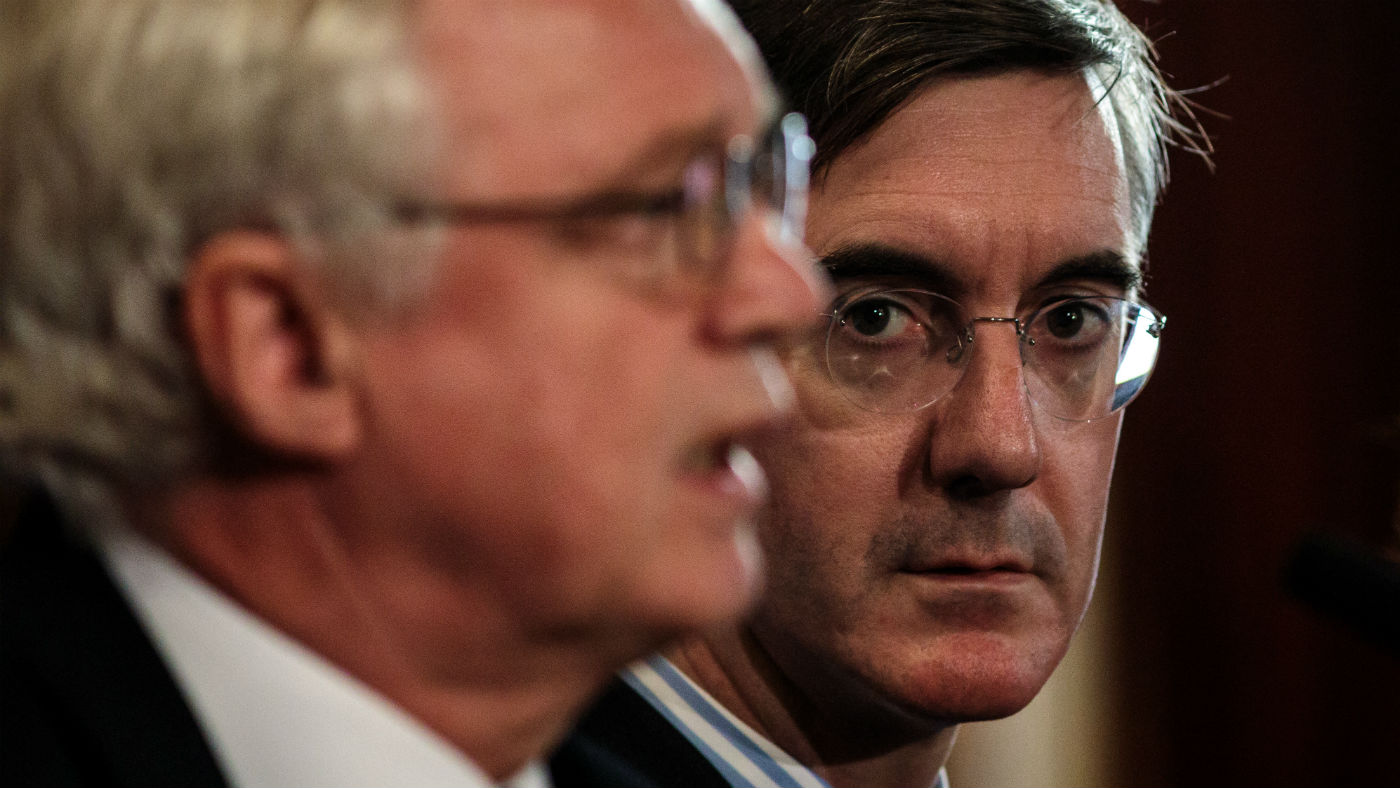Brexit: what is Plan A+ and do its numbers add up?
Leading Brexiteers unveil post-Brexit trade plan they claim will ‘set Britain free’ as critics question the maths

A free daily email with the biggest news stories of the day – and the best features from TheWeek.com
You are now subscribed
Your newsletter sign-up was successful
A new free trade plan hailed by leading Brexiteers as a viable and deliverable alternative to Theresa May’s Chequers Brexit plan has been met with scepticism from trade experts who question whether its numbers add up.
What new relationship is being proposed?
Plan A+: Creating a prosperous post-Brexit UK by the free-market thinktank the Institute for Economic Affairs (IEA) recommends a “basic” Canada-style free trade deal with the EU for goods and a new Anglo-Irish back-stop agreement to preserve the open border.
The Week
Escape your echo chamber. Get the facts behind the news, plus analysis from multiple perspectives.

Sign up for The Week's Free Newsletters
From our morning news briefing to a weekly Good News Newsletter, get the best of The Week delivered directly to your inbox.
From our morning news briefing to a weekly Good News Newsletter, get the best of The Week delivered directly to your inbox.
On trade, the IEA calls for the elimination of tariffs and quotas on all products the UK does not produce, including foodstuffs that cannot be grown here. It wants to restore sovereignty over British waters in fisheries policy and says the UK should join numerous global trade organisations as soon as possible.
It calls for “regulatory freedom” from the EU that will give it “trade independence” and says free movement from the EU should be replaced with a worldwide system that “recognises the economic and social benefits and costs of immigration”.
Who supports it?
The plan has already won the backing of a string of prominent Brexiteers, including former Brexit secretary David Davis, Labour’s Gisela Stuart and influential backbench MP Jacob Rees-Mogg, who called it the “most exciting contribution” to the Brexit debate in months.
A free daily email with the biggest news stories of the day – and the best features from TheWeek.com
Former foreign secretary Boris Johnson also threw his support behind the report, saying the proposals will “set us free to prosper”.
He also warned Theresa May’s Chequers plan would force the UK to accept EU rules “forever” as The Daily Telegraph reported a majority of the Cabinet now supports moving towards a Canada-style trade deal with the EU.
What has the reaction been?
While the IEA plan has drawn support from many Brexit big beasts, Plan A+ has “provoked heavy scepticism from trade experts” says Business Insider UK.
David Henig, the UK Director of the European Centre for International Political Economy, told the news site that the core of the project was pushing adopting US food standards, and that Plan A+ does not adequately explain why the UK should diverge from EU regulation despite their widespread use.
Henig also argues that the report does not establish how damaging it would be for the UK to diverge.
“Despite all of the noise, no-one has yet provided solid evidence to justify the core assertion” ” says the i newspaper: “that rejecting a close relationship with the trade and regulatory superpower on our doorstep in favour of unpredictable bounty further afield is in the economic interest of the UK, contrary to mainstream economists’ – and indeed the Government’s – assessments.”
“This is not a question of politics or economics, but maths” says Newsnight policy editor Chris Cook.
“First, this work breaks lots of the accepted rules of basic data hygiene and model designs. The peculiar way the model is fitted together means it could never produce a reliable or stable output that could be relied upon”.
“Second, the model's whole weight sits on assumptions that are odd or indefensible” he writes. “For example, all else being equal, it assumes making it cheaper to lay people off will lead to a rise in health spending and a rise in domestic banks' supply of credit. That, in turn will lead to a rise in output.”
-
 Local elections 2026: where are they and who is expected to win?
Local elections 2026: where are they and who is expected to win?The Explainer Labour is braced for heavy losses and U-turn on postponing some council elections hasn’t helped the party’s prospects
-
 6 of the world’s most accessible destinations
6 of the world’s most accessible destinationsThe Week Recommends Experience all of Berlin, Singapore and Sydney
-
 How the FCC’s ‘equal time’ rule works
How the FCC’s ‘equal time’ rule worksIn the Spotlight The law is at the heart of the Colbert-CBS conflict
-
 Local elections 2026: where are they and who is expected to win?
Local elections 2026: where are they and who is expected to win?The Explainer Labour is braced for heavy losses and U-turn on postponing some council elections hasn’t helped the party’s prospects
-
 How corrupt is the UK?
How corrupt is the UK?The Explainer Decline in standards ‘risks becoming a defining feature of our political culture’ as Britain falls to lowest ever score on global index
-
 Can Starmer continue to walk the Trump tightrope?
Can Starmer continue to walk the Trump tightrope?Today's Big Question PM condemns US tariff threat but is less confrontational than some European allies
-
 The high street: Britain’s next political battleground?
The high street: Britain’s next political battleground?In the Spotlight Mass closure of shops and influx of organised crime are fuelling voter anger, and offer an opening for Reform UK
-
 EU-Mercosur mega trade deal: 25 years in the making
EU-Mercosur mega trade deal: 25 years in the makingThe Explainer Despite opposition from France and Ireland among others, the ‘significant’ agreement with the South American bloc is set to finally go ahead
-
 Biggest political break-ups and make-ups of 2025
Biggest political break-ups and make-ups of 2025The Explainer From Trump and Musk to the UK and the EU, Christmas wouldn’t be Christmas without a round-up of the year’s relationship drama
-
 Is Keir Starmer being hoodwinked by China?
Is Keir Starmer being hoodwinked by China?Today's Big Question PM’s attempt to separate politics and security from trade and business is ‘naïve’
-
 ‘The menu’s other highlights smack of the surreal’
‘The menu’s other highlights smack of the surreal’Instant Opinion Opinion, comment and editorials of the day